Uncategorized
-
 Astronomy
AstronomyAstronomers find far-flung wind from a black hole in the universe’s first light
The detection of black hole winds far from their host galaxy could reveal details of how galaxies and black holes grow up together.
-
 Science & Society
Science & SocietySeeking a panacea in the gut’s microbiome
Editor in Chief Nancy Shute discusses the potential role of the gut microbiome in Parkinson's disease and one reporter's connection to the story.
By Nancy Shute -
 Physics
PhysicsReaders inquire about a Neptune-sized moon, nuclear pasta and more
Readers had questions about a Neptune-sized moon, nuclear pasta and the search for extraterrestrial life.
-
 Health & Medicine
Health & MedicineIn a first, a woman with a uterus transplanted from a deceased donor gives birth
After receiving a uterus from a deceased donor, a woman gave birth to a healthy girl in December of 2017.
-
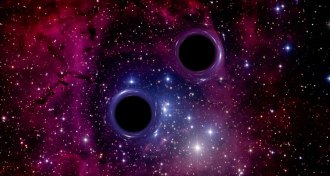 Physics
PhysicsScientists’ collection of gravitational waves just got a lot bigger
The biggest black hole merger yet seen created one set of the spacetime ripples.
-
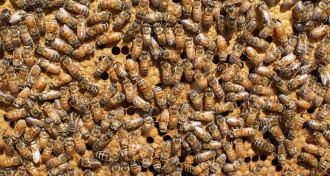 Animals
AnimalsRebel honeybee workers lay eggs when their queen is away
A honeybee queen’s absence in the colony triggers some workers to turn queen-like and lay eggs, sometimes in other colonies.
By Yao-Hua Law -
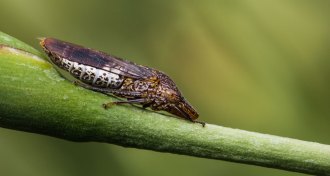 Life
LifeHow some sap-sucking insects fling their pee
Sharpshooters hurl their pee with structure called a stylus, which sends droplets flying at 20 times the acceleration of Earth’s gravity.
-
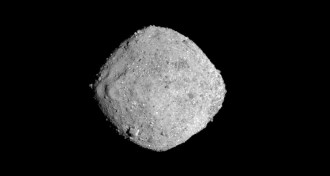 Planetary Science
Planetary ScienceNASA’s OSIRIS-REx spacecraft has finally arrived at asteroid Bennu
Planetary scientists hope the probe will reveal if such carbon-rich asteroids helped kick-start life on Earth.
-
 Particle Physics
Particle PhysicsThe Large Hadron Collider is shutting down for 2 years
The world’s largest particle accelerator will restart in 2021 at higher energy.
-
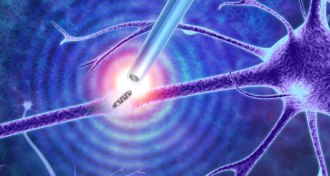 Life
LifeThese new tweezers let scientists do biopsies on living cells
Nanotweezers that can pluck molecules from cells without killing them could enable real-time analysis of the insides of healthy and diseased cells.
-
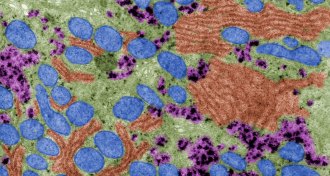 Life
LifeDads, not just moms, can pass along mitochondrial DNA
Data from three families suggest that in rare cases children can inherit mitochondria from their fathers.
-
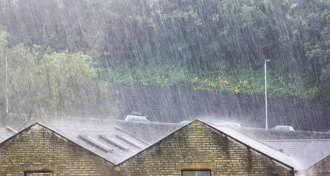 Climate
ClimateHalf the world’s annual rain falls in just 12 days
Climate change could shorten the time it takes for the world to receive half its annual precipitation from 12 days to 11 by 2100.
By Kyle Plantz